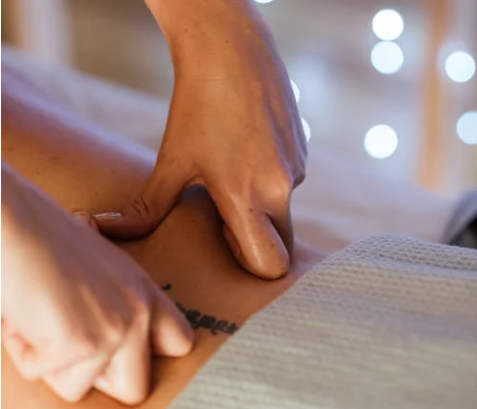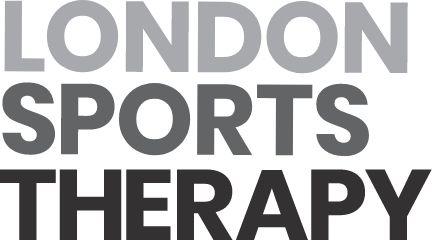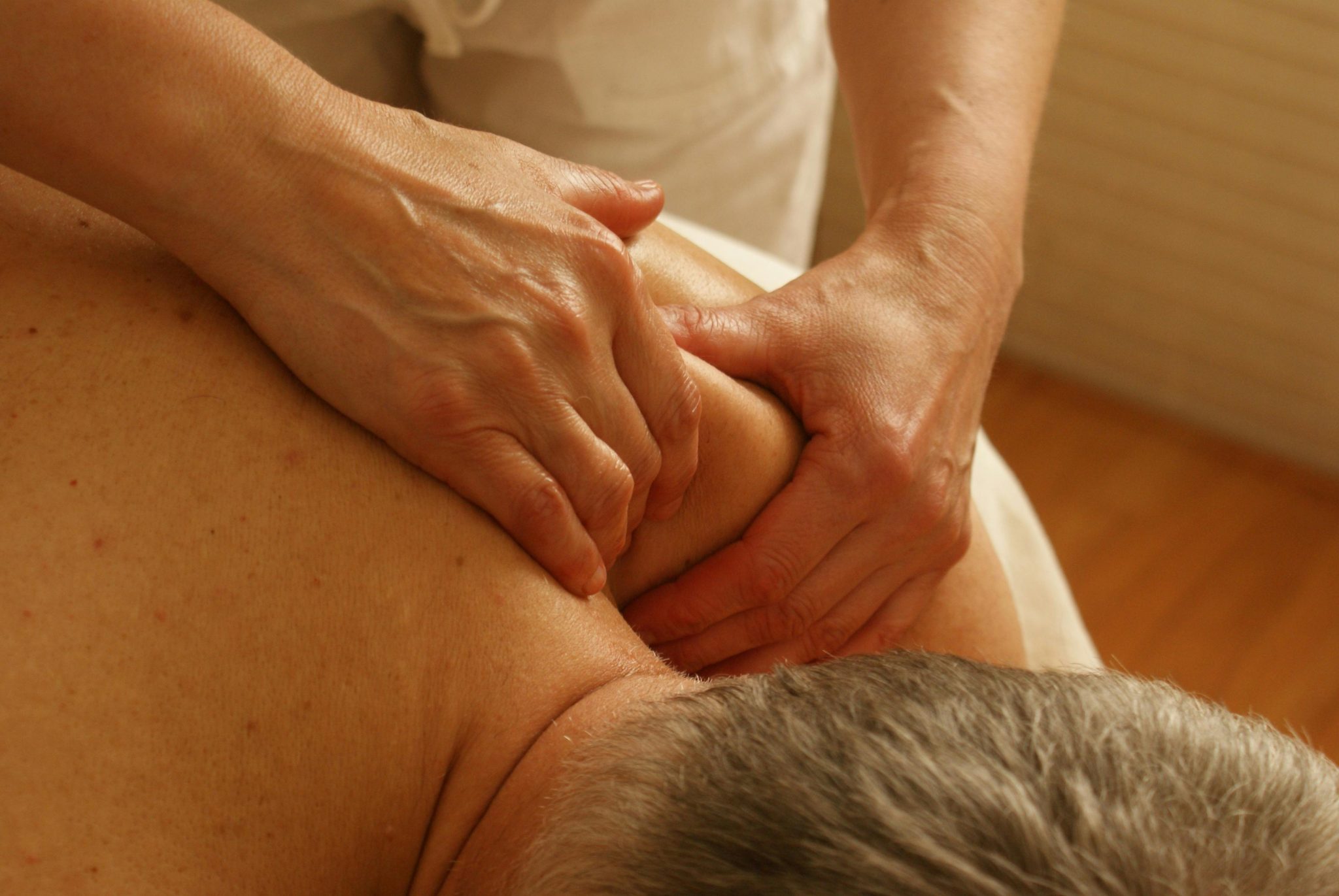Have you ever considered booking a sports massage? Are those reserved just for athletes? Or can anyone have them? What even is a sports massage and how is it different from other types of massage therapies? What are the benefits of sports massage?
These are just some of the burning questions you may have about this topic. So let’s answer them all and find out how sports massage can help you.
What is sports massage?
Sports massage is a specialised form of massage therapy that targets the specific needs of athletes and individuals engaged in sports or physical activities. It involves manipulative techniques applied to the muscles, soft tissues, and connective tissues of the body to enhance athletic performance, aid recovery, and prevent injuries.
Sports massage techniques can vary, but they often include a combination of deep tissue massage, stretching, compression, and other modalities tailored to the needs of the patient. When you come and see us for sports massage, we focus on the areas of your body that are stressed, overused, or prone to injury (due to the sports activities you practise), or simply on what hurts, feels ‘tight’, or is giving you any sort of discomfort or concern.
What is sports massage for?
The primary goals of sports massage are to:
- Improve muscle flexibility.
- Reduce muscle tension and soreness.
- Enhance circulation.
- And promote your overall well-being.
A good sports massage can help as a pre-event warm-up or a post-event recovery technique. As sports therapists, we are trained to adapt our techniques based on the specific sport you practise, your individual goals, and your stage of training or competition.
It’s important to point out that sports massage isn’t just for elite athletes. At the clinic, we regularly treat recreational athletes, fitness enthusiasts, and anyone seeking to optimise their physical performance at a particular sport or at the gym and to prevent injuries.
If you want to find out more, this Instagram post illustrates the benefits of sports massage.
How does sports massage differ from other forms of massage?
We often get asked how sports massage is different from other types of relaxing or deep-tissue massage. Here are some of the ways we think make sports massage stand out.
- Focus. Sports massage focuses specifically on the needs of individuals engaged in sports or physical activities. As such, it’s great for addressing the unique challenges and requirements related to sports performance, training, and injury prevention. While other types of massage may help in these areas, they don’t cover these aspects as thoroughly or enough.
- Techniques. Sports massage incorporates a combination of techniques tailored to the needs of the athletes. For example, we may include deep tissue massage, stretching, compression, etc. We combine the right techniques to improve athletic performance, flexibility, muscle recovery, or anything our patients may need.
- Timing. Sports massage can be performed before a sports activity or event to prepare the muscles and enhance performance but also after physical exertion to aid in muscle recovery, reduce soreness, and prevent post-workout stiffness. It can also be something that our clients come to see us for regularly for injury prevention and rehabilitation.
Sports massage is a specialised skill
As sports therapists, we have specific training and knowledge related to sports medicine and the unique demands of various sports or activities. We understand the biomechanics of specific sports, and we take pride in customising our techniques to meet the individual needs of our patients.
We are also trained to identify potential areas of injury or muscular imbalances in athletes and sports people. With sports massage, we can help prevent injuries by addressing muscle tension, improving flexibility, and promoting proper muscle alignment. Sports massage also plays a fundamental role in the rehabilitation of sports-related injuries. It supports the healing process and helps restore normal function.
In a nutshell, while other forms of massage therapy can provide relaxation, stress relief, and general wellness benefits, sports massage specifically targets the physical demands and performance goals of athletes and individuals engaged in sports or physical activities.

How does sports massage contribute to unlocking peak performance in athletes?
Sports massage can improve your physical performance in a range of different ways:
- Improved circulation. Massage increases muscle blood flow, delivering oxygen and nutrients while removing waste. This enhances muscle function and performance.
- Enhanced flexibility. Techniques such as stretching and deep tissue work improve muscle flexibility and range of motion. This can lead to better biomechanics and reduced injury risk.
- Reduced muscle tension. Sports massage alleviates muscle tightness and releases knots and trigger points. But it can also reduce spasms and promote relaxation, enhancing muscle function.
- Faster recovery. Massage helps with waste removal, reduces inflammation, and enhances lymphatic drainage. This results in faster recovery times after workouts or competitions.
- Injury prevention. By identifying and addressing muscle imbalances, tightness, and adhesions, sports massage helps prevent injuries so you can perform without pain or limitations.
- And finally, mental and emotional benefits. Massage promotes relaxation, reduces stress, and enhances focus, concentration, and mental resilience. All these factors ultimately improve athletic performance.
Does sports massage hurt?
The experience of a sports massage can vary from person to person, but it’s not uncommon to feel a certain degree of discomfort during the session. Sports massages are designed to target areas of the body that are particularly tense or have been overused through strenuous physical activity, which can lead to sensations of soreness or tenderness during the treatment.
That being said, while the procedure may involve deep pressure and robust techniques to release muscle knots and improve circulation, it should never cause unbearable pain. Communicating with your sports therapist during your appointment is key to ensuring that the pressure applied is within your tolerance level for optimal benefits without experiencing unnecessary discomfort.
When’s the best time to schedule a sports massage?
The best time to schedule a sports massage depends on your activities and goals. For professional or recreational athletes in training for an event, a massage can be highly beneficial during the recovery phase after a heavy training session, which allows the body to heal and muscles to relax. Typically, 1-2 days post intense workout or event is an ideal window.
If you’re training for an event, the timing and intensity of a sports massage are crucial. A lighter, more stimulating massage is often recommended before a competition to enhance circulation, increase flexibility, and reduce muscle tension without causing soreness or fatigue. This type of massage is typically performed several days before the event or as part of the warm-up on the day of the competition. Avoiding deep tissue techniques close to the event time is essential, as they may be too intense and potentially lead to muscle soreness. However, each athlete’s response to massage is individual, so try this approach during training rather than for the first time just before a significant event.
If your goal is maintenance and injury prevention, a massage every 1-2 weeks can support ongoing training. Regular gym-goers, sports enthusiasts, or active individuals might find a weekly or bi-weekly massage beneficial, particularly after periods of increased activity or to address specific aches. However, we have patients who also leave longer windows (such as 4-6 weeks) in between appointments.
It’s also worth considering a massage during rest days to aid in muscle recovery and flexibility. Timing should cater to individual needs, and ongoing dialogue with your therapist will optimise the benefits of your sports massage regimen.
If you have any further questions about sports massage, head over to these Instagram posts to find out more:
Sports massage – a success story
We have several patients who have experienced the transformative benefits of sports massage. Here’s what our lovely, long-standing client Gabrielle says:
“Thank you London Sports Therapy Team. Where do I begin? I have personally been a patient/client for over 10 years. The team led by Josie Mitchell has been professional, helpful, and attentive at all times. Over the years, I have had several incidents, including hereditary Scoliosis, and Rheumatoid Arthritis following glandular fever in late middle age. They have kept me mobile and positive throughout, for which I am eternally grateful. I know they rightly have a very faithful and grateful following”.
Gabrielle is a very active grandmother who did marathon walks and now does Pilates and goes to the gym and on regular dog walks. She’s no stranger to the Camino Santiago either, and we couldn’t be prouder of having the honour of helping Gabrielle (and many others like her) in her journey.
So even if you don’t see yourself as an athlete, we’d like to invite you to challenge this perspective and consider how a sports massage may help in your individual circumstances.
Would you like to book a sports massage with us?
If you’re ready to elevate your performance, soothe your muscles, and embrace peak physical wellness, it’s time to book your sports massage with us. Don’t wait for the discomfort to turn into pain or the fatigue to get in the way of your progress.
Schedule your session with our team and take the first step towards a more revitalised, agile, and pain-free you. Your body does so much for you — it’s time to give back! Book now to feel the difference a professional sports massage can make.

